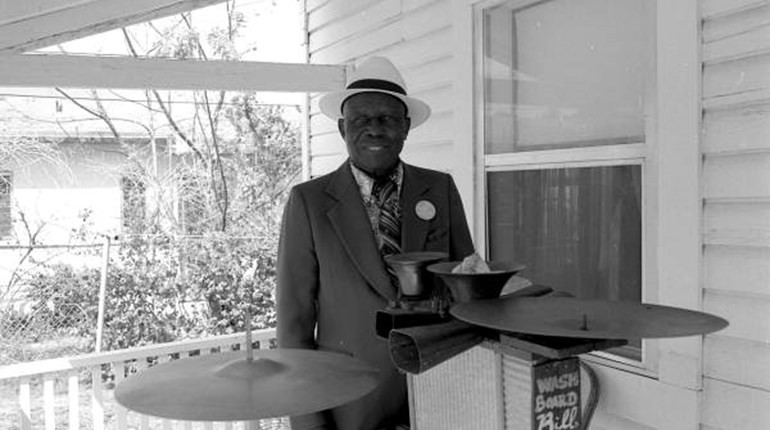William “Washboard Bill” Cooke was born in Dupont, a small town in Flagler County. One of his first memories was of peering out his bedroom door to watch the music that came from the juke joint his mother ran in the room below. At that time, there was no local school for African American children, and at age six he began working for 25 cents a day at a local sawmill. Later, when times became bad, he, his mother, and siblings lived in an abandoned box car. Eventually they moved to his grandfather’s farm in Sanford. During the depression of the l930s, Cooke left home and led the life of a hobo for ten years.
Cooke became interested in percussion music while working in a Harlem nightclub during the 1940s. However, following the minstrel tradition, he developed a talent for playing two washboards with attached cymbals and cowbells rather than choosing the drums. He subsequently formed a popular band and worked as “Washboard Bill.” Musicologist David Holt said “guys like Bill grew up and learned their music before radio and TV so you could easily trace what he does back to the 1830s in the minstrel show days.”
During his years in New York, Cooke maintained his links with Florida, generally spending his winters in West Palm Beach. Between 1947 and 1963 his group, the West Palm Beach Washboard Band, regularly performed at the railway station, and also played at the estates of such luminaries as the Rockefellers and Kennedys. In 1973 Cooke moved permanently to West Palm Beach, and continued to play at events in Florida and throughout the country until his death.
